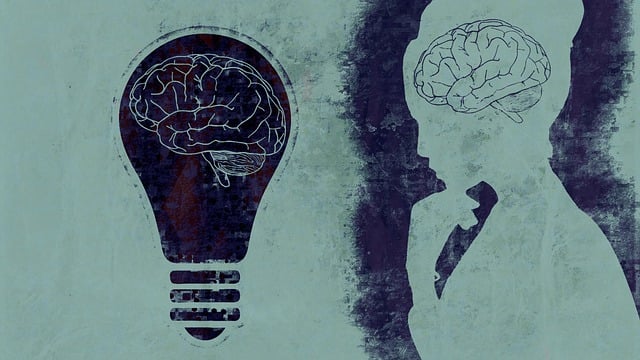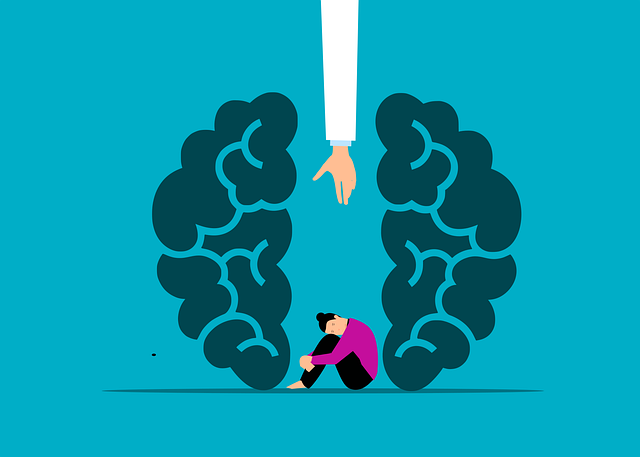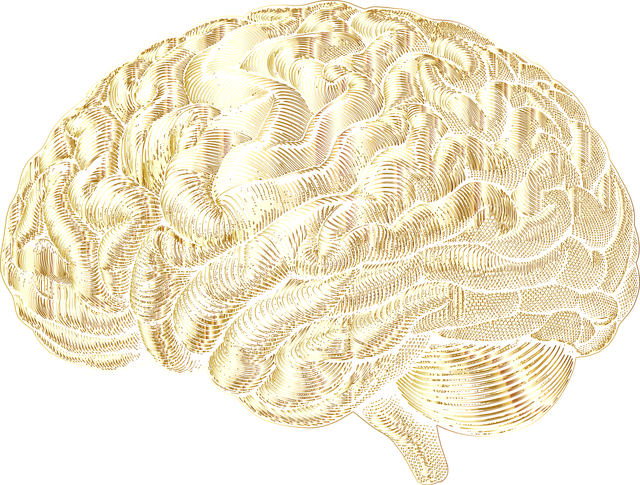Obsessive Compulsive Disorder (OCD) is a common mental health challenge among young adults, characterized by intrusive thoughts and repetitive behaviors. Effective therapy includes Cognitive Behavioral Therapy (CBT), particularly Exposure and Response Prevention (ERP) to manage obsessions without compulsions. Key techniques focus on identifying and changing negative thought patterns, risk assessment for treatment plans, and mood management strategies. Therapy builds resilience and inner strength, empowering young adults to challenge OCD symptoms and reduce stigma. Maintaining coping skills through coaching programs, self-reflection, and podcasts is crucial for long-term mental wellness, preventing relapse in conditions like OCD.
Coping skills development is a vital component in managing Obsessive Compulsive Disorder (OCD) among young adults. This article explores essential strategies for navigating OCD, focusing on therapy as a powerful tool. We delve into various therapeutic approaches, including cognitive-behavioral techniques, to empower individuals in their healing journey. Additionally, we discuss building resilience and long-term coping strategies to prevent relapse. Understanding OCD in young adults and accessing effective therapy are key steps towards overcoming this challenge.
- Understanding Obsessive Compulsive Disorder in Young Adults
- The Role of Therapy in Coping Skills Development
- Common Cognitive Behavioral Techniques for OCD Management
- Building Resilience and Coping Strategies
- Long-term Maintenance and Relapse Prevention
Understanding Obsessive Compulsive Disorder in Young Adults

Obsessive Compulsive Disorder (OCD) is a mental health condition that significantly impacts young adults, often manifesting during adolescence or early adulthood. It’s characterized by intrusive thoughts and repetitive behaviors designed to alleviate anxiety caused by those thoughts. Those affected may feel compelled to perform certain rituals, like excessive handwashing, checking, or counting, to reduce the distress associated with their obsessions. While OCD can be debilitating, therapy for young adults suffering from it has proven effective. Cognitive Behavioral Therapy (CBT), particularly Exposure and Response Prevention (ERP) therapy, is a leading approach that helps individuals confront and manage their obsessions without resorting to compulsive behaviors.
Understanding the root causes of OCD in young adults involves recognizing the role of genetics, brain chemistry, and environmental factors. High levels of stress and anxiety can trigger or exacerbate symptoms. Thus, integrating stress reduction methods into treatment plans can be beneficial. Mental wellness podcasts dedicated to OCD have emerged as valuable resources, offering insights, support, and coping strategies tailored to this demographic’s needs. These platforms not only facilitate access to information but also foster a sense of community among those navigating the challenges of OCD, ultimately contributing to improved mental wellness.
The Role of Therapy in Coping Skills Development

Therapy plays a pivotal role in coping skills development for young adults, especially those dealing with disorders like Obsessive Compulsive Disorder (OCD). Professional therapy provides a safe and supportive space for individuals to explore their thoughts, feelings, and behaviors. Through evidence-based practices such as cognitive behavioral therapy (CBT), therapists help clients challenge and reframe negative thought patterns, reduce anxiety, and develop effective coping strategies.
For young adults with OCD, therapy goes beyond symptom management; it’s about fostering mental wellness. The Mental Wellness Podcast Series Production offers valuable insights into various therapeutic techniques, promoting positive thinking and emotional healing processes. By engaging in regular therapy sessions, individuals can gain a deeper understanding of their disorder, enhance their coping abilities, and improve overall quality of life.
Common Cognitive Behavioral Techniques for OCD Management

Common Cognitive Behavioral Techniques for OCD Management
One effective approach to managing Obsessive Compulsive Disorder (OCD) in young adults is through cognitive behavioral therapy (CBT). CBT focuses on identifying and modifying negative thought patterns and behaviors that contribute to OCD symptoms. This involves helping individuals recognize their obsessive thoughts and compulsions, and teaching them strategies to challenge these thoughts and avoid engaging in repetitive behaviors. By understanding the connection between thoughts, feelings, and actions, young adults can develop healthier coping mechanisms and improve their mental wellness.
In the context of therapy for young adults with OCD, mental health professionals often utilize techniques like exposure and response prevention (ERP). ERP involves gradual exposure to situations that trigger obsessions, while preventing the individual from performing the corresponding compulsions. This process helps desensitize individuals to their fears and reduces the urge to engage in ritualistic behaviors. Additionally, risk assessment for mental health professionals plays a crucial role in tailoring treatment plans, ensuring safe and effective therapy delivery, and facilitating successful outcomes, especially with complex cases. Effective mood management strategies are also integrated into CBT for OCD, aiming to regulate emotional responses and enhance overall mental wellness.
Building Resilience and Coping Strategies

Building resilience is a crucial aspect of coping skills development, especially for young adults navigating mental health challenges like Obsessive Compulsive Disorder (OCD). Therapy for young adults with OCD often incorporates strategies to enhance inner strength and resilience. Through cognitive-behavioral therapy (CBT) and other evidence-based approaches, individuals learn to challenge obsessive thoughts and reduce compulsive behaviors. This process empowers them to develop coping strategies that strengthen their ability to manage distressing symptoms.
Mental illness stigma reduction efforts play a significant role in this journey. By fostering understanding and empathy, young adults with OCD can feel more supported and encouraged to seek help without fear of judgment. As they build resilience and inner strength, individuals gain the confidence to face challenges head-on, promoting overall well-being and personal growth.
Long-term Maintenance and Relapse Prevention

Maintaining newly developed coping skills is crucial for long-term mental wellness. For individuals dealing with conditions like Obsessive Compulsive Disorder (OCD), which often requires therapy for young adults, relapse can be a significant concern. Effective strategies for preventing relapse involve integrating these coping mechanisms into daily routines and fostering inner strength. Mental wellness coaching programs offer tailored support to help individuals stay on track, addressing any challenges that may arise.
Additionally, consistent self-reflection and practice are vital. Regularly reviewing one’s progress and identifying triggers can prevent relapses. Engaging in mental wellness podcast series production featuring relatable stories of recovery can provide ongoing inspiration and guidance. Ultimately, these practices empower individuals to maintain their coping skills and promote sustained mental wellness.
Coping skills development is a crucial aspect of managing Obsessive Compulsive Disorder (OCD) in young adults. Through therapy, individuals can learn effective strategies such as cognitive-behavioral techniques to challenge and change unhelpful thoughts and behaviors. Building resilience equips them to face challenges head-on, while long-term maintenance and relapse prevention ensure sustained recovery. By investing in their mental health through therapy for young adults with OCD, individuals can lead fulfilling lives free from the constraints of this condition.










